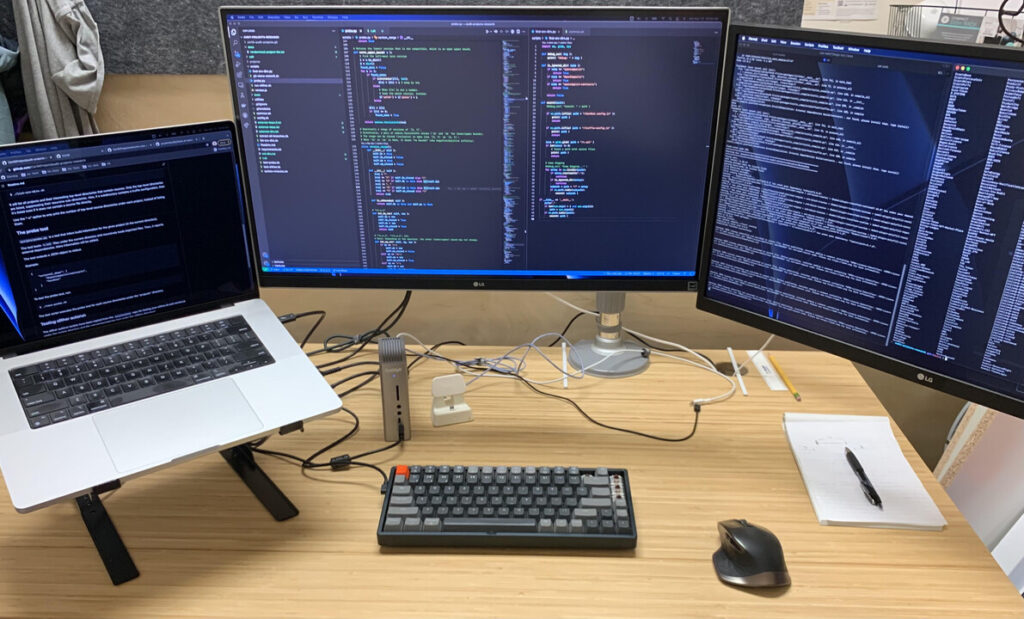As a Principal Systems Architect and Digital Strategy Expert, I’ve worked with a wide range of tools and technologies that have been pivotal in driving successful projects. These tools are the backbone of my workflow, enabling me to design robust systems, deliver impactful digital strategies, and stay ahead in a fast-evolving tech landscape.
Here’s a breakdown of the essential tools and technologies that have shaped my journey:
1. Cloud Platforms
Cloud computing has revolutionized the way businesses operate, and mastering cloud platforms has been essential for modern architecture. The platforms I’ve relied on most include:
AWS (Amazon Web Services): For scalable, on-demand infrastructure and services.
Microsoft Azure: A versatile option for hybrid cloud solutions.
Google Cloud Platform: Excellent for big data and machine learning integrations.
Why These Matter: Cloud platforms provide the flexibility, scalability, and reliability needed to support everything from startups to enterprise-level organizations.
2. Development Frameworks and Languages
System architecture requires choosing the right tools for the job. Over the years, I’ve leaned on:
Python: For automation, data processing, and AI/ML tasks.
C#: A powerful language for enterprise-level applications.
JavaScript Frameworks (React, Node.js): To build dynamic and responsive front-end and back-end solutions.
Why These Matter: Each of these languages and frameworks allows for efficient, scalable, and maintainable code tailored to diverse project needs.
3. DevOps Tools
Bridging the gap between development and operations is critical for delivering seamless solutions. The tools that have made this possible include:
Jenkins and GitHub Actions: For Continuous Integration/Continuous Deployment (CI/CD).
Docker and Kubernetes: For containerization and orchestration of applications.
Terraform: To manage infrastructure as code (IaC).
Why These Matter: DevOps tools streamline workflows, reduce deployment times, and ensure consistent environments.
4. Collaboration and Project Management Tools
Successful projects require strong collaboration. Some of my go-to tools include:
Atlassian Suite (Jira, Confluence): For project tracking and documentation.
Slack: For real-time communication and team updates.
Miro: For visual brainstorming and architecture diagrams.
Why These Matter: These tools help ensure all stakeholders are aligned and projects stay on track.
5. Analytics and Strategy Tools
Driving digital transformation requires data-driven decisions. Tools I’ve used to analyze and strategize include:
Google Analytics: For understanding user behavior and web performance.
Power BI and Tableau: For creating interactive dashboards and visualizing insights.
SEMRush and Ahrefs: For developing and executing digital marketing strategies.
Why These Matter: Analytics tools provide the insights needed to make informed decisions and optimize strategies for maximum impact.
Final Thoughts
The tools and technologies I use are more than just software—they are enablers of innovation and growth. Staying updated and mastering these tools has been a cornerstone of my success as a Principal Systems Architect and Digital Strategy Expert.
Share this:
- Click to share on Facebook (Opens in new window) Facebook
- Click to share on X (Opens in new window) X
- Click to share on LinkedIn (Opens in new window) LinkedIn
- Click to share on Reddit (Opens in new window) Reddit
- Click to share on Pinterest (Opens in new window) Pinterest
- Click to share on Pocket (Opens in new window) Pocket
- Click to share on WhatsApp (Opens in new window) WhatsApp
- Click to email a link to a friend (Opens in new window) Email


